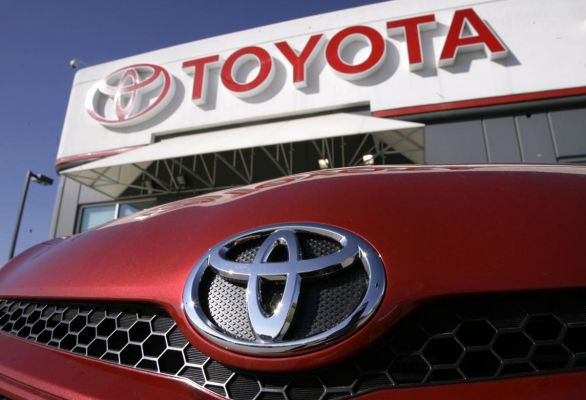Can't Bring Me Down: Toyota Brand Unaffected By Recalls

The massive wave of recalls that brought some 9 million Toyotas back to the dealers, amidst a frenzied coverage by a sometimes hysteric media, did less damage to the brand than imagined. A study from North Carolina State University shows that Toyota’s safety-related recalls that began in 2009 had little to no impact on how consumers perceived the brand.
Dr. Robert Hammond, assistant professor of economics at NC State, launched the study because he wanted to see how consumers respond to recalls. Hammond looked at used-car markets as a measure of how much Toyota owners were willing to accept when selling their vehicles – and how much used-car buyers were willing to pay for them.
Hammond found that there was very little effect on what consumers were willing to pay for a Toyota. Hammond found that the average price of affected vehicles declined by approximately 2 percent relative to comparable, unaffected vehicles (such as similar Honda models). That 2 percent decline is within the statistical margin-of-error for the study. What’s more, the effect was temporary: The first Toyota recall was in November 2009, and the apparent decline in vehicle price had leveled out by January 2010.
Initial reports of drops in resale value turned out to be premature. In 2011, Toyota and Lexus were back on top in the Kelley Blue Book rankings.
Hammond did a similar analysis of Audi vehicles that were recalled due to similar acceleration concerns in 1986. The impact there was more significant. Audi showed an average price slide of over 16 percent relative to similar, unaffected vehicles over the course of six months.
The paper, “Sudden Unintended Used-Price Deceleration? The 2009-2010 Toyota Recalls” will be published in the Journal of Economics and Management Strategy.

Bertel Schmitt comes back to journalism after taking a 35 year break in advertising and marketing. He ran and owned advertising agencies in Duesseldorf, Germany, and New York City. Volkswagen A.G. was Bertel's most important corporate account. Schmitt's advertising and marketing career touched many corners of the industry with a special focus on automotive products and services. Since 2004, he lives in Japan and China with his wife <a href="http://www.tomokoandbertel.com"> Tomoko </a>. Bertel Schmitt is a founding board member of the <a href="http://www.offshoresuperseries.com"> Offshore Super Series </a>, an American offshore powerboat racing organization. He is co-owner of the racing team Typhoon.
More by Bertel Schmitt
Latest Car Reviews
Read moreLatest Product Reviews
Read moreRecent Comments
- Kwik_Shift_Pro4X I will drive my Frontier into the ground, but for a daily, I'd go with a perfectly fine Versa SR or Mazda3.
- Zerofoo The green arguments for EVs here are interesting...lithium, cobalt and nickel mines are some of the most polluting things on this planet - even more so when they are operated in 3rd world countries.
- JMII Let me know when this a real vehicle, with 3 pedals... and comes in yellow like my '89 Prelude Si. Given Honda's track record over the last two decades I am not getting my hopes up.
- JMII I did them on my C7 because somehow GM managed to build LED markers that fail after only 6 years. These are brighter then OEM despite the smoke tint look.I got them here: https://www.corvettepartsandaccessories.com/products/c7-corvette-oracle-concept-sidemarker-set?variant=1401801736202
- 28-Cars-Later Why RHO? Were Gamma and Epsilon already taken?


































Comments
Join the conversation
Obama and Bush get reelected for second term despite of running record deficits, waging unfunded wars and launching unfunded populist programs. Obama even received Nobel Peace prize for that. And how about senators doing nothing but inflicting harm to people who elected them and getting re-elected term after term for decades. That's a human nature. People are religious even if they deny it.
I think that this situation is pretty easy to read. Toyota has built decades worth of reputation-building cars. Were they all perfect or even great? No, but generally a Toyota has been a safe bet. GM used to have this reputation (as the safest bet for a decent car) but they've spent my entire car-buying lifetime destroying it. The law of inertia applies in both cases. It will take a long time for Toyota to become perceived as a bad gamble and an equally long time for GM to become a good one. Having said that, I really believe that the Volt's lack of sales is more price-related than safety-based. To choose a Volt you have to be someone who believes that its technology or its Americanism are worth roughly $10K over comparable competition from the Leaf or the Prius along with being someone who can afford the car and and who has a situation where the car is useable. Hyundai is doing well now, but it's taken 20 years to recover from the Excel fiasco. VW's legend seems to have survived their spotty quality record fairly well, but at one point they led their Japanese competitors in the US and now are really only a niche player. Finally, we come to FIAT whose legendary rust and quality caused them to withdraw from the US market all-together. I'm very interested to see whether their history has an impact on sales. Right now, I don't think that the 500 is a valid test. It's soooo small that I tend to see it as almost as much of a niche vehicle as the Volt, although with perhaps more potential for rental fleet service.